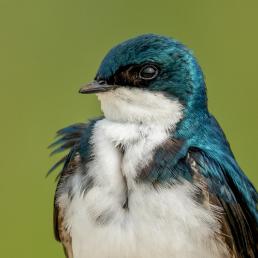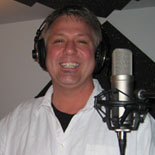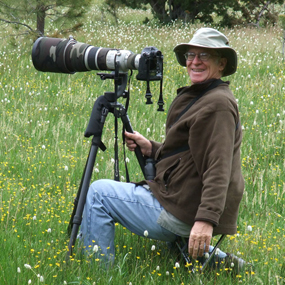

Join BirdNote tomorrow, November 30th!
Illustrator David Sibley and actor H. Jon Benjamin will face off in the bird illustration battle of the century during BirdNote's Year-end Celebration and Auction!
The natural habitats of the Gulf Coast are critical to birds migrating between North, Central, and South America. With the BP oil spill, restoring Gulf-coast habitat has taken on new urgency. The Barataria-Terrebonne National Estuary Program is restoring habitat and rejuvenating the maritime forest, where birds like this Ruddy Turnstone not only stop over during migration but also nest. After the long flight across the Gulf of Mexico, birds literally fall from the sky to rest and feed in these coastal areas.
BirdNote®
Habitat Restoration on the Gulf Coast
Written by Todd Peterson
This is BirdNote.
[Ruddy Turnstone and American Oystercatcher calls; waves]
The natural habitats of the Gulf coast are critical to birds migrating between North, Central, and South America. With the BP oil spill, restoring Gulf-coast habitat has taken on new urgency.
We talked with Kerry St. Pe, director of the Barataria-Terrebonne National Estuary Program in Thibodaux, Louisiana.
[Ruddy Turnstone calls]
He told us that right now they’re restoring habitat on barrier islands where birds not only rest and feed during migration but also nest. Red Knots, Least Terns, egrets and other wading birds, pelicans, and Roseate Spoonbills will all benefit. [Red Knots]
[Waves, barrier islands]
Another high priority is rejuvenating the maritime forest by planting red mulberry, hackberry, and live oak, so songbirds have food and shelter when they return north each spring. [Wood Thrush song]
Observers tell of birds, like Wood Thrushes and Rose-breasted Grosbeaks, exhausted and famished from their long flight across the Gulf of Mexico literally falling from the sky to rest and feed in these coastal forests.
[Rose-breasted Grosbeak song]
Just as human activities can have ruinous consequences for birds, our activities can assure them a healthy future. Learn more about this restoration program on our website, BirdNote.org. Today’s show brought to you by The Lufkin Family Foundation.
###
Sounds of the birds provided by The Macaulay Library of Natural Sounds at the Cornell Lab of Ornithology, Ithaca, New York. Ruddy Turnstones recorded by C.A. Sutherland 3051; calls of the American Oystercatcher by T.A. Parker III in Louisiana (CD62 T 8); Red Knot recorded by W.W. H. Gunn; Wood Thrush 40807 by G.F. Budney; and Rose-breasted Grosbeak – S.R. Pantel (CD58 T 5)
Producer: John Kessler
Executive Producer: Chris Peterson
© 2011 Tune In to Nature.org January 2011 Narrator: Michael Stein
ID# SotB-oilspill-01-2011-01-05








